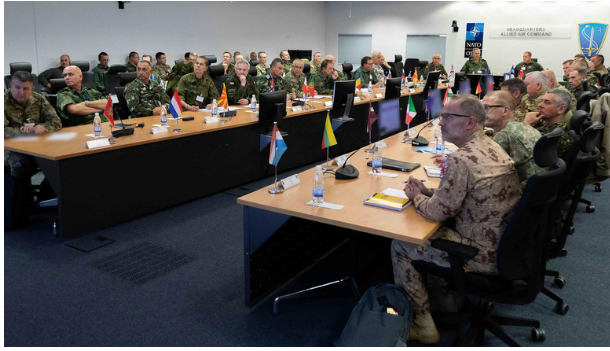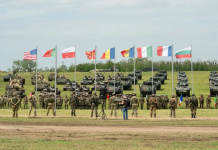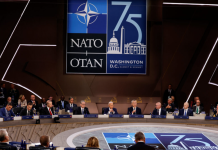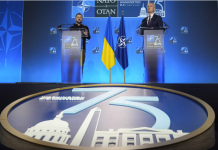On 26-27 October 2023, the NATO Military Committee visited Allied Air Command (AIRCOM) headquartered at Ramstein Air Base, Germany. The visit involved discussions and updates on the Air and Space domains and the importance of agile Air Power in NATO’s multi-domain operations, against the backdrop of the Alliance’s major deterrence and defence posture overhaul.
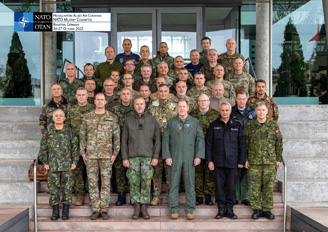
Admiral Bauer, Chair of the NATO Military Committee, also highlighted AIRCOM’s critical expertise in deploying Allied air forces along the eastern flank, orchestrating air defence capabilities and strengthening command and control of Allied integrated air assets.
Reflecting on Air and Space Power as a force multiplier and catalyst for NATO multi-domain operations, the Chair discussed ‘ubiquity’ as the unique capability offered by Air Power to ensure “we stay one step ahead of our adversaries, from seabed to space”.
Sessions throughout the day offered the NATO HQ military representatives a deep-dive into how AIRCOM implements the Alliance’s subordinate strategic plans in the Air and Space domains and centered on a number of key topics, included Integrated Air and Missiles Defence (IAMD) in correlation to industrial capacity; intelligence, surveillance and reconnaissance; and integrated processes among nations.
“This challenge goes beyond the simple concept of air and missile defence we were accustomed to”, said Admiral Bauer reflecting on the importance of Air and Space Power as a critical element of the Alliance’s overall deterrence and defence, now and going forward.
“In this new era of collective defence – marked by an increasingly complex and multifaceted global security landscape – the importance of Air and Space Power as a cornerstone of NATO’s deterrence and defence capabilities will continue to grow”, he stressed, adding that this is instrumental to the Alliance’s readiness and ability to defend every inch of our territory and uphold our shared values of freedom and democracy.


